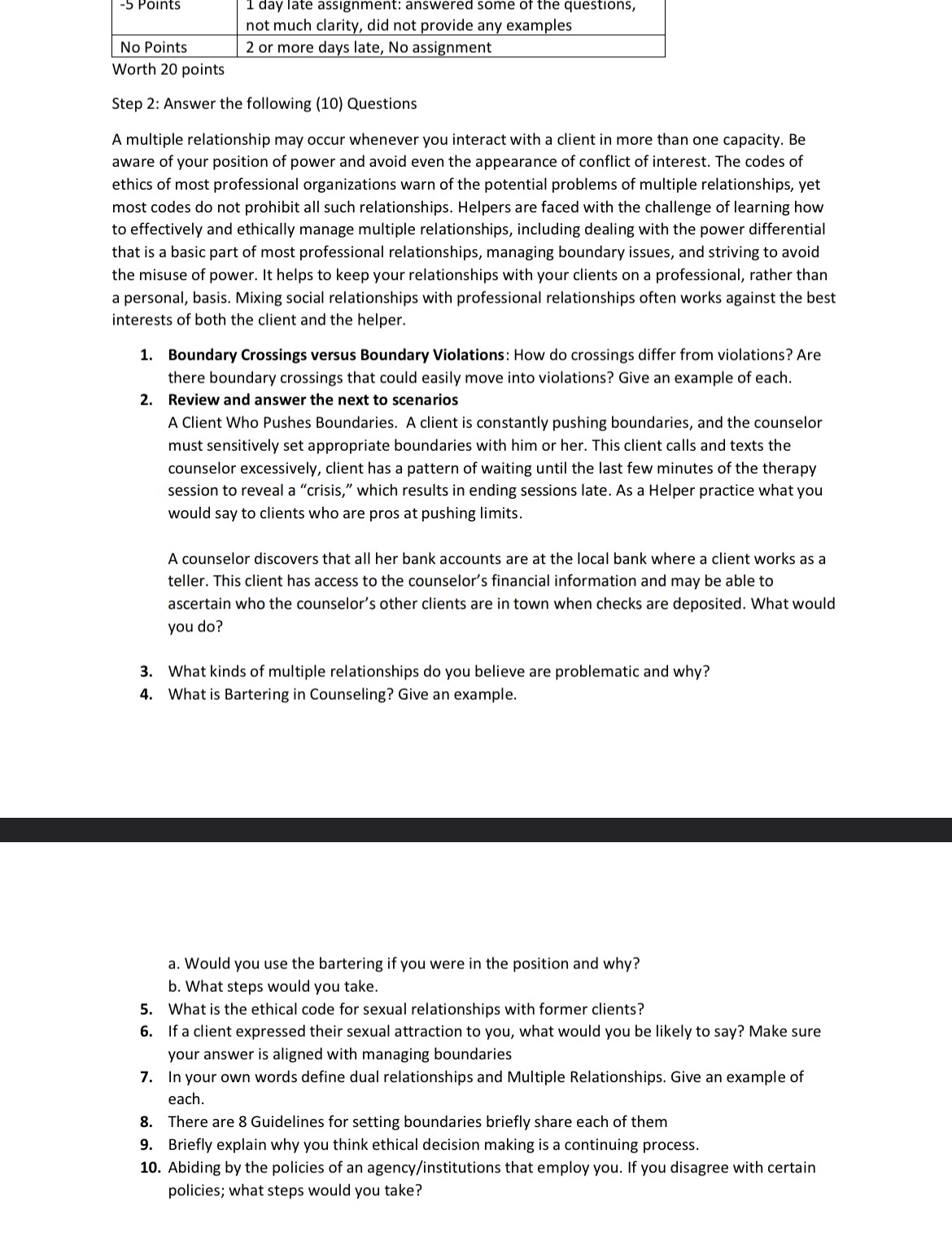Answered step by step
Verified Expert Solution
Question
1 Approved Answer
-5 Points No Points Worth 20 points 1 day late assignment: answered some of the questions, not much clarity, did not provide any examples

-5 Points No Points Worth 20 points 1 day late assignment: answered some of the questions, not much clarity, did not provide any examples 2 or more days late, No assignment Step 2: Answer the following (10) Questions A multiple relationship may occur whenever you interact with a client in more than one capacity. Be aware of your position of power and avoid even the appearance of conflict of interest. The codes of ethics of most professional organizations warn of the potential problems of multiple relationships, yet most codes do not prohibit all such relationships. Helpers are faced with the challenge of learning how to effectively and ethically manage multiple relationships, including dealing with the power differential that is a basic part of most professional relationships, managing boundary issues, and striving to avoid the misuse of power. It helps to keep your relationships with your clients on a professional, rather than a personal, basis. Mixing social relationships with professional relationships often works against the best interests of both the client and the helper. 1. Boundary Crossings versus Boundary Violations: How do crossings differ from violations? Are there boundary crossings that could easily move into violations? Give an example of each. 2. Review and answer the next to scenarios A Client Who Pushes Boundaries. A client is constantly pushing boundaries, and the counselor must sensitively set appropriate boundaries with him or her. This client calls and texts the counselor excessively, client has a pattern of waiting until the last few minutes of the therapy session to reveal a "crisis," which results in ending sessions late. As a Helper practice what you would say to clients who are pros at pushing limits. A counselor discovers that all her bank accounts are at the local bank where a client works as a teller. This client has access to the counselor's financial information and may be able to ascertain who the counselor's other clients are in town when checks are deposited. What would you do? 3. What kinds of multiple relationships do you believe are problematic and why? 4. What is Bartering in Counseling? Give an example. a. Would you use the bartering if you were in the position and why? b. What steps would you take. 5. What is the ethical code for sexual relationships with former clients? 6. If a client expressed their sexual attraction to you, what would you be likely to say? Make sure your answer is aligned with managing boundaries 7. In your own words define dual relationships and Multiple Relationships. Give an example of each. 8. There are 8 Guidelines for setting boundaries briefly share each of them 9. Briefly explain why you think ethical decision making is a continuing process. 10. Abiding by the policies of an agency/institutions that employ you. If you disagree with certain policies; what steps would you take?
Step by Step Solution
There are 3 Steps involved in it
Step: 1

Get Instant Access to Expert-Tailored Solutions
See step-by-step solutions with expert insights and AI powered tools for academic success
Step: 2

Step: 3

Ace Your Homework with AI
Get the answers you need in no time with our AI-driven, step-by-step assistance
Get Started


